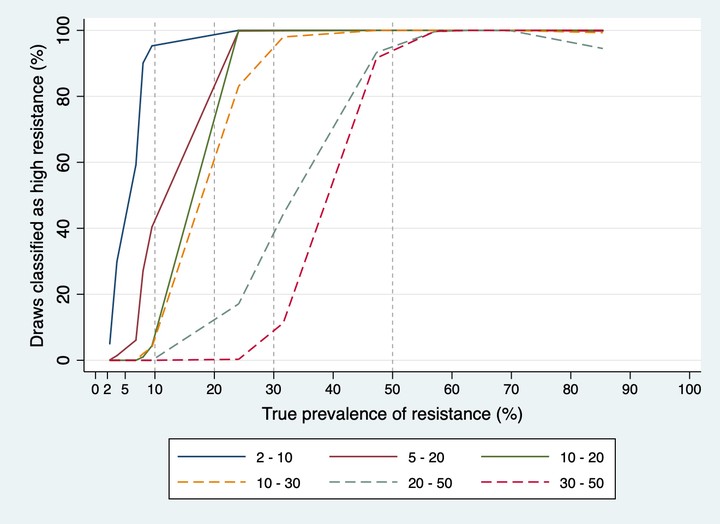Rethinking Antimicrobial Resistance Surveillance: A Role for Lot Quality Assurance Sampling.

Abstract
Global surveillance of antimicrobial resistance (AMR) is a key component of the Global Action Plan on AMR. Laboratory-based surveillance is inherently biased and lacks local relevance due to aggregation of data. We assessed the feasibility, sensitivity, and affordability of a population-based AMR survey using Lot Quality Assurance Sampling (LQAS), which classifies a population as having a high or low prevalence of AMR based on a-priori defined criteria. Three studies were carried out in Medan and Bandung, Indonesia between April 2014 and June 2017. LQAS classifications for 15 antibiotics were compared with AMR estimates from a conventional population-based survey, with an assessment of the cost of a single LQAS classification using micro-costing methodology in patients suspected of urinary tract infection in eleven sites in Indonesia. The sensitivity of LQAS was above 98%. The approach detected local variation in the prevalence of AMR across sites. Time to reach LQAS results ranged from 44 to 138 days. The average cost of an LQAS classification in a single facility was 460 USD. The findings indicate that LQAS-based AMR survey is a feasible, sensitive and affordable strategy for population-based AMR surveys, providing essential data to inform local empirical treatment guidelines and antimicrobial stewardship efforts.